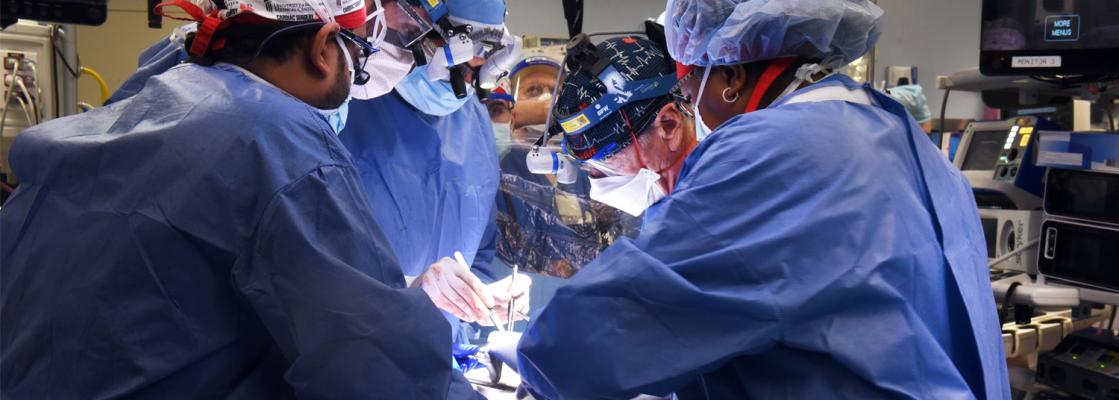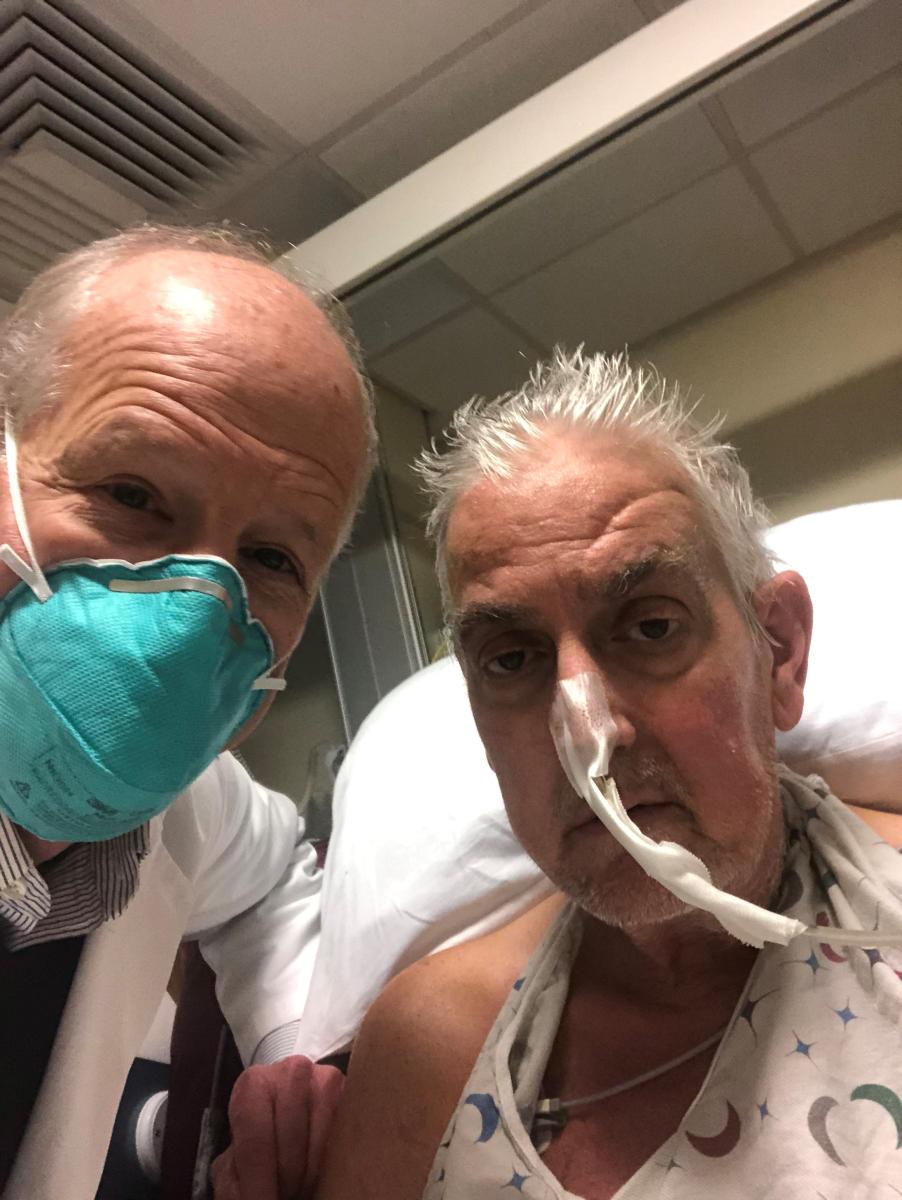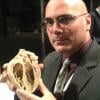
Photo from the first procedure to transplant a porcine heart into a human Jan. 7, 2022, at the University of Maryland Medical Center. All photos from the University of Maryland Medical Center.
After 15 years of covering new cardiovascular technologies, it is not often that something comes across my email, or I see at a conference, that is something truly novel, innovative and has the potential to be an immediate paradigm shift in how medicine is practiced. However, I found myself dropping what I was doing to immediately start working on a story and video about the first pig heart transplant into a human when the news broke the night of Jan. 10. This first-in-man procedure certainly caught my attention and imagination, as it did with cardiologists and the public at large.
The University of Maryland Medical Center (UMMC) created a cardiac xenotransplantation (animal organ transplantation) program a few years ago with the goal of developing technology to enable the transplant of pig hearts into humans. They were the first to successfully do this Jan. 7, 2022, in 57-year-old advanced heart failure patient David Bennett of Maryland. He had previously been turned down for a heart transplant by other centers and was only able to survive on ECMO in the hospital. UMMC petitioned the FDA to authorize the groundbreaking procedure for compassionate use, since no other options remained for this patient. The FDA granted permission on New Year's Eve.
If this procedure proves successful, it could truly be a paradigm shift in how stage IV heart failure patients are treated in the future. It could eliminate the heart transplant waiting list for human hearts with the ability to have an immediately available heart for the surgery. This also can make hearts available regardless of patient comorbidities or other factors that might otherwise disqualify a patient today for a human heart transplant. This concept of using pig hearts also might eliminate the need for bridge-to-transplant technologies such as left ventricular assist devices (LVAD). These devices are also being used for destination therapy, and pig hearts may offer a more attractive alternative. Also, while new technologies in development for total artificial hearts are promising, the use of pig hearts could eliminate many of the issues associated with using a totally man-made device, such as thrombosis, hemolysis, the infection risks from drive lines, and need for an external power supply.
The porcine heart is very similar in size, shape and function to the human heart. So much so that pigs are used in preclinical research for cardiovascular devices prior to their use in human patients. Pig hearts are also used as surrogates for human hearts due to their close similarity in anatomy classes and medical schools.

However, the pig's genetics are different from humans, so it is not as easy as removing a pig's heart and placing it into a human. The UMMC xenotransplantation used a genetically modified porcine heart. They modified 10 genes in the heart to try and eliminate the common issue of rejection by the patient's body, which is a problem in both human heart transplants and previously attempted animal heart transplants. Another gene they edited regulated the growth of the pig's organs.
Only time will tell with this first patient if the gene editing technology is successful and makes xenotransplant possible. The longer Mr. Bennett survives, the more steps into the future we make into our understanding of this technology and its viability.
When I first began covering cardiology, many cardiologists I spoke with at cardiology meetings like ACC and TCT thought the new concept of transcatheter heart valve replacements discussed in new technology sessions was a science fiction pet project and would never see wide use, even if it worked. But, in less than a decade, transcatheter aortic valve replacement (TAVR) has become the dominant form of aortic valve replacement procedure volume in the United States. The concept of transplanting pigs hearts could be that same sort of paradigm shift and deserves to be closely watched, now that it has suddenly exploded into the limelight.
Read more: First Human Receives a Pig Heart Transplant
VIDEO: Details on the First Pig Heart Transplant Surgery in a Human



 February 03, 2026
February 03, 2026 









